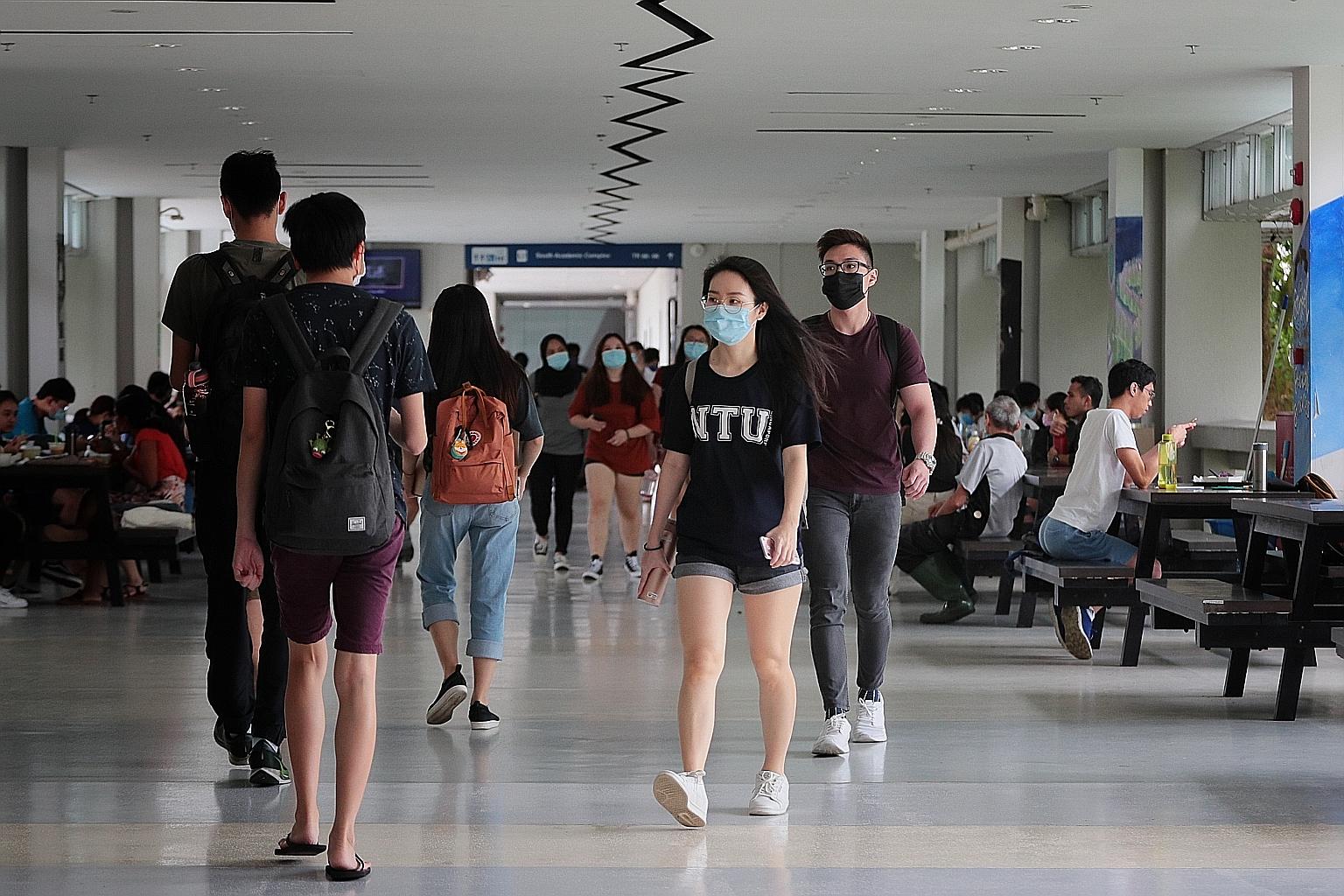NTU rolls out new core curriculum for freshmen
Interdisciplinary skills will be focus in effort to prepare students for changing workforce
Sign up now: Get tips on how to help your child succeed

Nanyang Technological University's new core curriculum for undergraduates comprises seven modules covering topics such as digital literacy, global challenges, and communication and inquiry. The modules will make up about a fifth of their overall academic workload.
ST PHOTO: JASON QUAH
Follow topic:
Freshmen joining Nanyang Technological University (NTU) in the new academic year in August will take up a new common curriculum that spans a variety of subjects.
They will also need to complete internships in order to graduate.
These are among the initiatives that NTU laid out yesterday - as part of its plans for the next five years - to better prepare students for a changing workforce.
The core curriculum, which emphasises interdisciplinary skills, comprises seven modules covering topics such as digital literacy, communication and inquiry, ethics and global challenges.
The aim is to help students make connections between disciplines and prepare them for a world where complex challenges need to be tackled from different angles.
The revamped curriculum starts with the 6,000 freshmen joining NTU in August - except those studying medicine and those at the National Institute of Education.
The modules, which students will take across their first two years, make up about a fifth of the overall academic workload.
Higher learning institutions have been making a greater push for students to see connections across disciplines.
In August, the National University of Singapore will enrol first-year students into its new College of Humanities and Sciences, marking a shift from the traditional way of learning in separate disciplines.
Speaking to The Straits Times, NTU president Subra Suresh said that with the overhaul of the core curriculum, undergraduates will take classes alongside peers from other disciplines and listen to a wider range of faculty members.
He cited the example of an engineering or computer science student who would naturally have computer literacy and coding expertise. But he would also need to understand softer aspects of technology, such as the ethics of computing, as well as privacy and confidentiality.
"An arts student will get to see a professor from mathematics, who will talk about data privacy... or may get an opportunity to meet and talk to an economics professor from the business school or somebody who does blockchain," said Professor Suresh.
"So it's these kinds of serendipitous encounters that we want to foster at the undergraduate level."
The university degree that today's undergraduates leave with must be relevant to the changing times - it cannot be the same as that of the generations that came before them, added Prof Suresh.
"(Graduates) are going to have five to six decades of career where they have to not only continually change jobs - it's inevitable that they're also going to continually change professions."
NTU will also widen its interdisciplinary offerings, with a new undergraduate major in economics and data science from August, as well as higher degree programmes in areas like neuroscience.
The increasing focus on interdisciplinarity also extends to staff, said Prof Suresh.
NTU, which currently has some 1,450 faculty members, will in the next five years create joint positions across schools for existing and new staff.
"(This will impact) how we look at tenure, how we look at promotion, how we reward (faculty), how we recognise their achievements," said Prof Suresh, noting that NTU has adopted broader evaluation methods in recent years.
"The criteria is much more holistic than numerical KPIs (key performance indicators), how many papers you published. Ultimately, impact is what we care about, and impact can be defined in many different ways," he said.
"If you are a computer science professor and you haven't published something, but you've written a code that Facebook and Google and WeChat and all of these (companies) use... it's impact."
NTU hopes to give faculty "the freedom to move around in a much broader space", he said. "If we allow them to do that, they'll be much better teachers."

